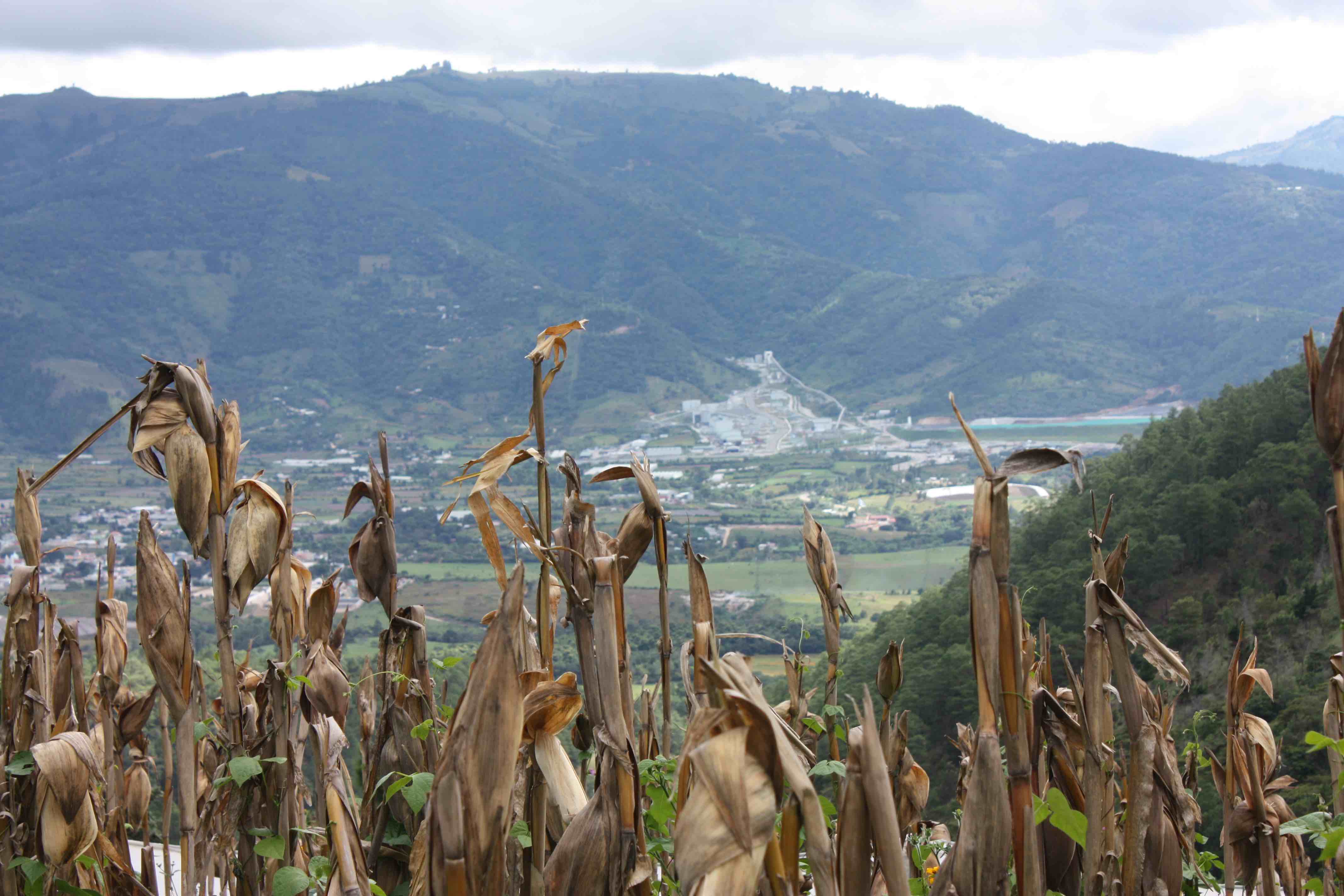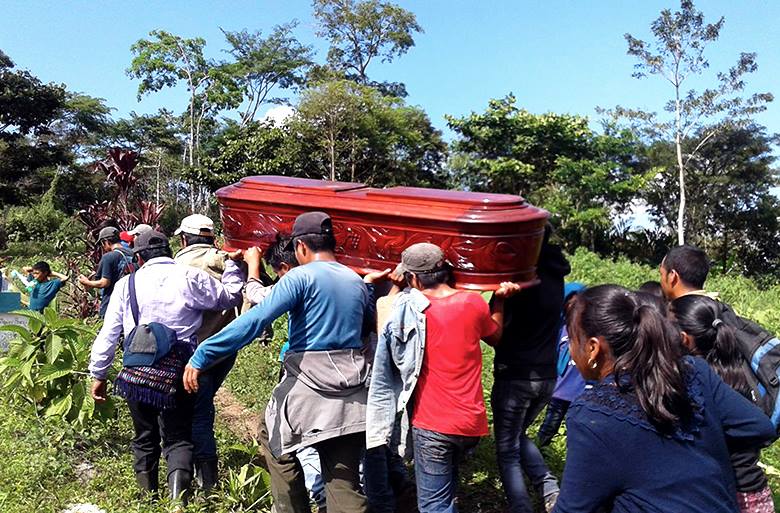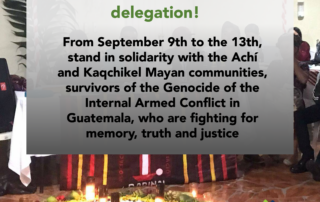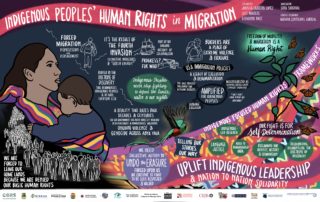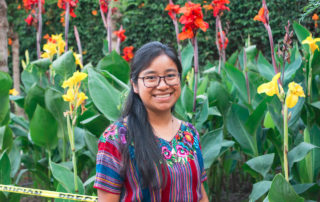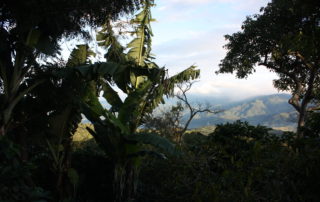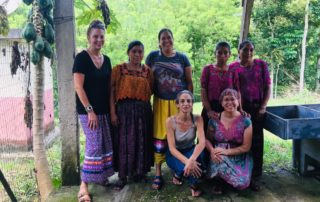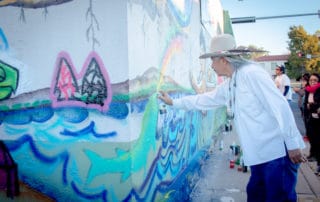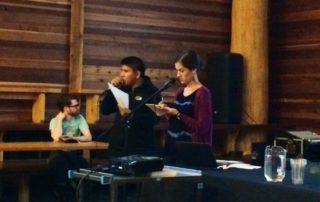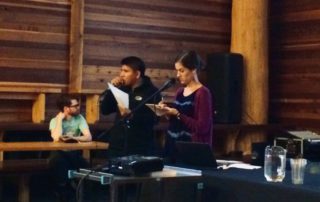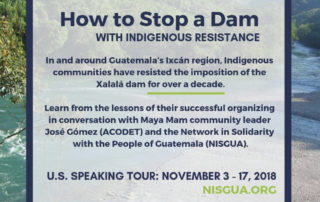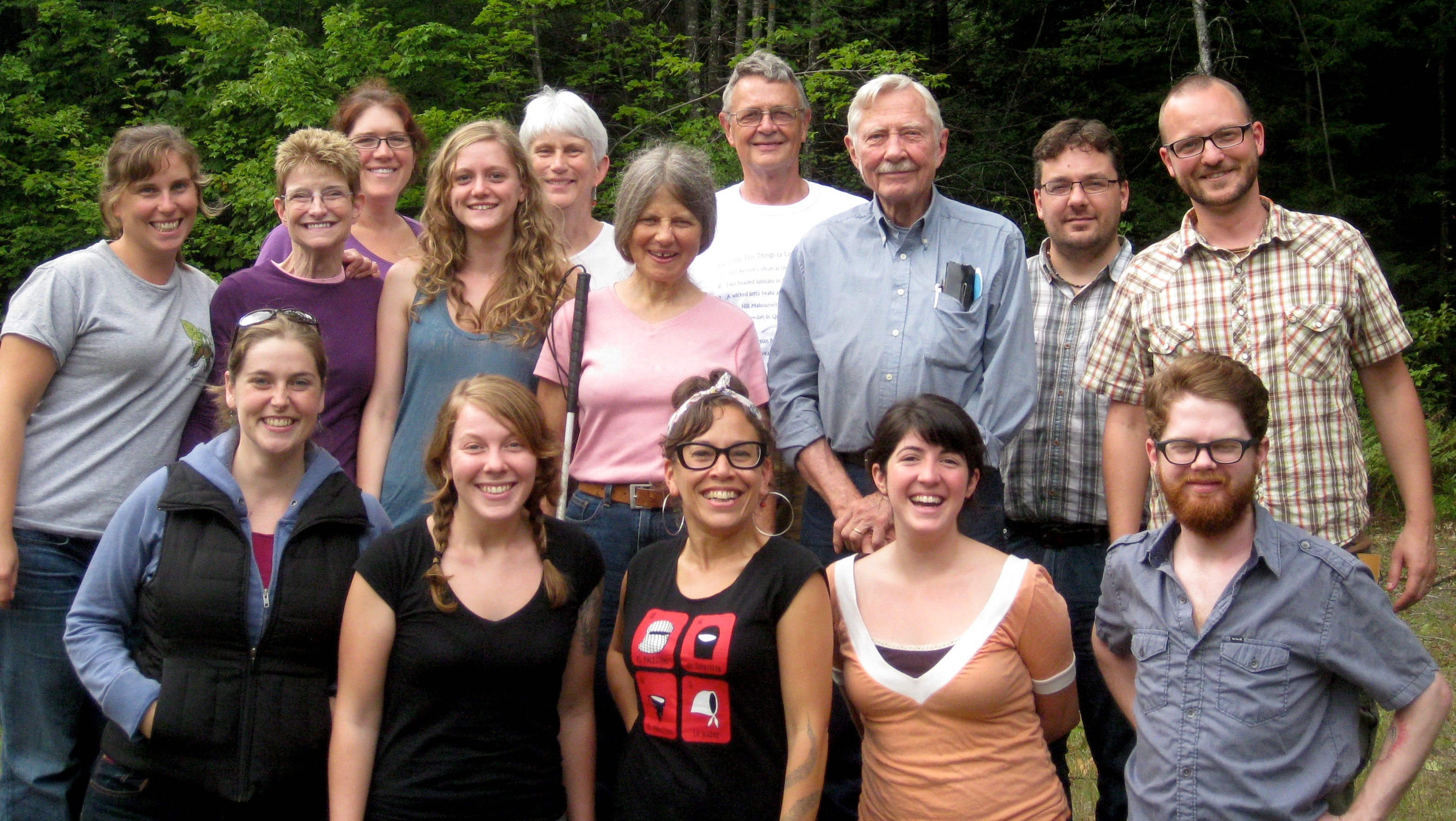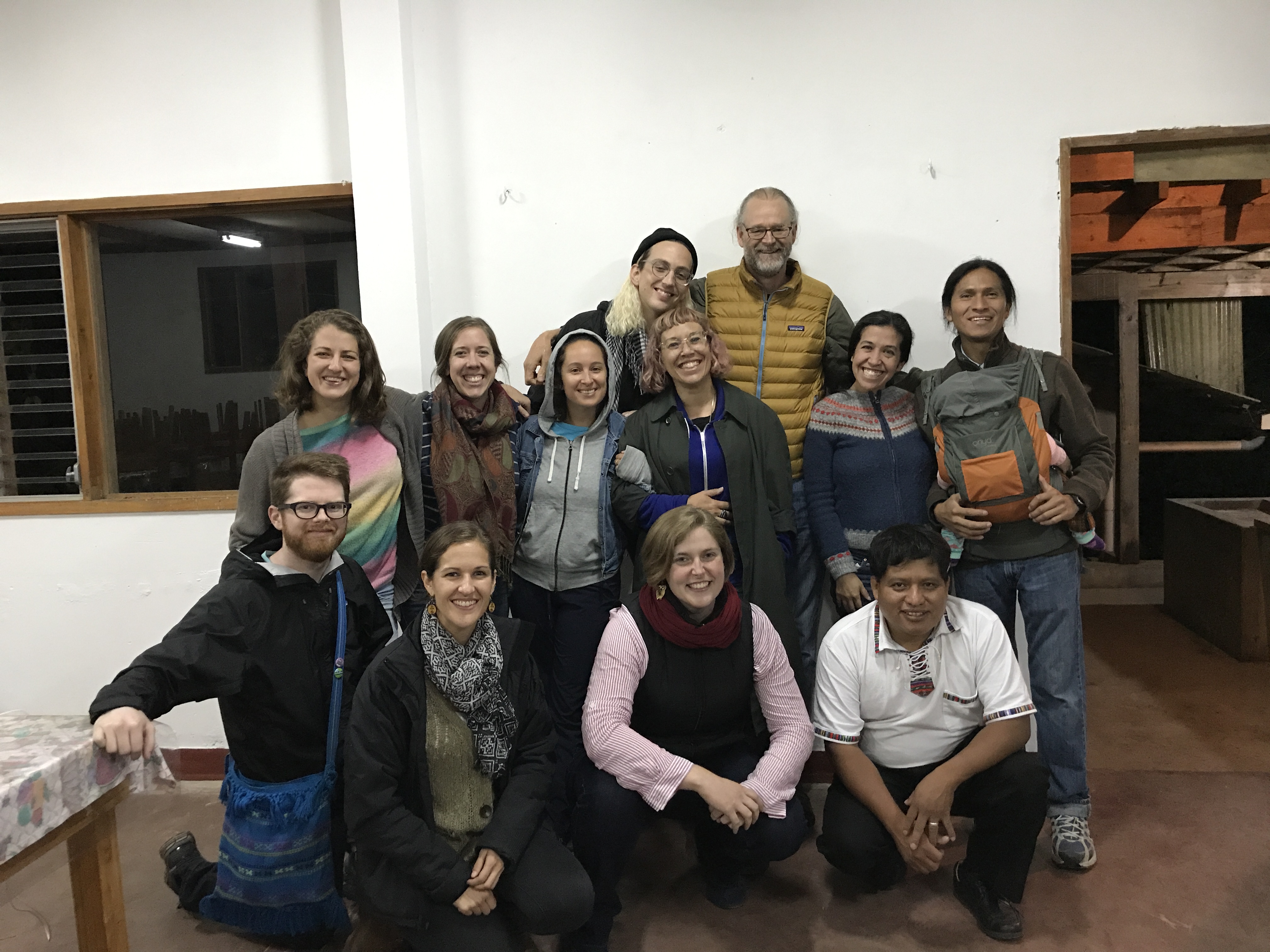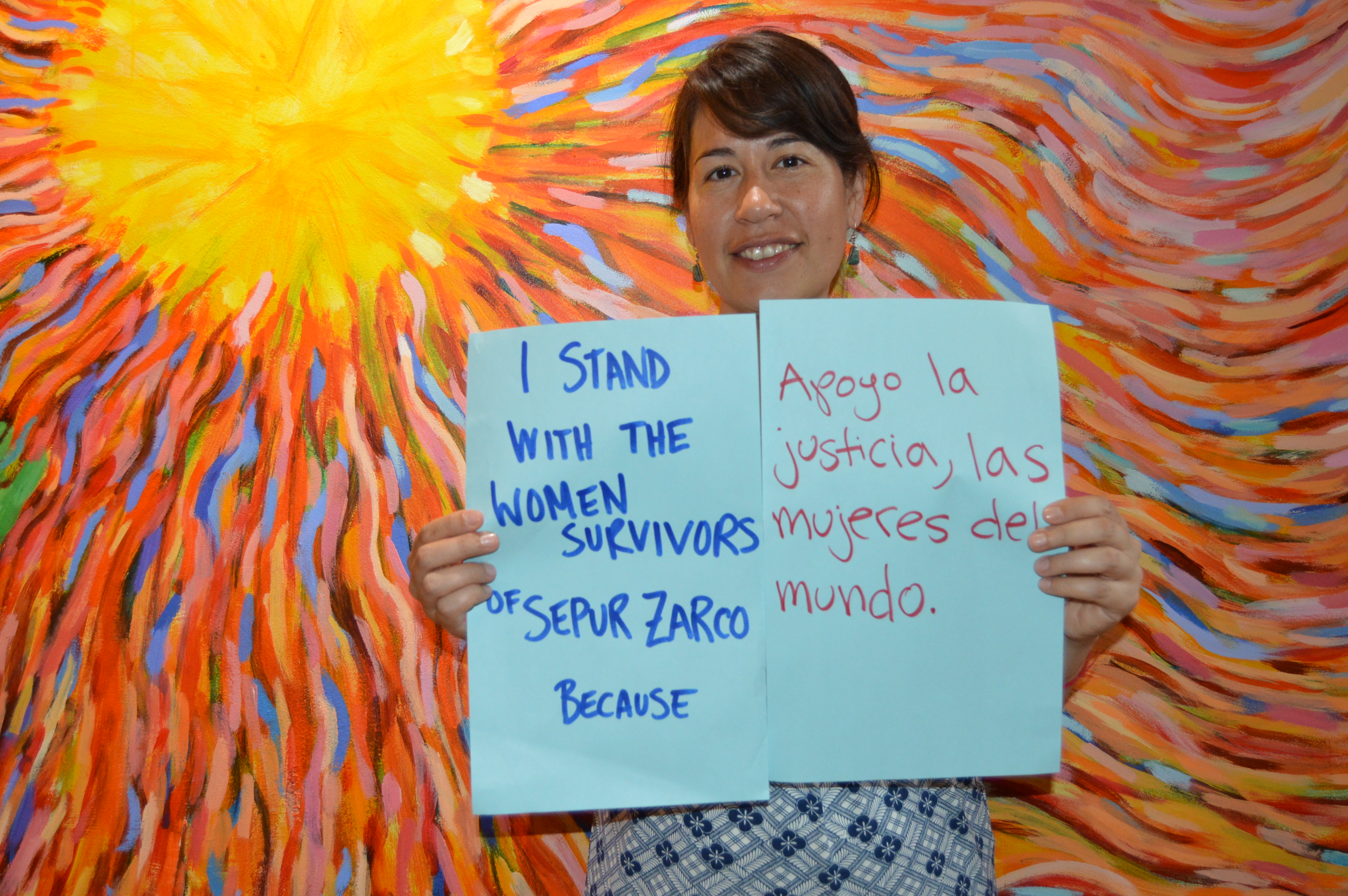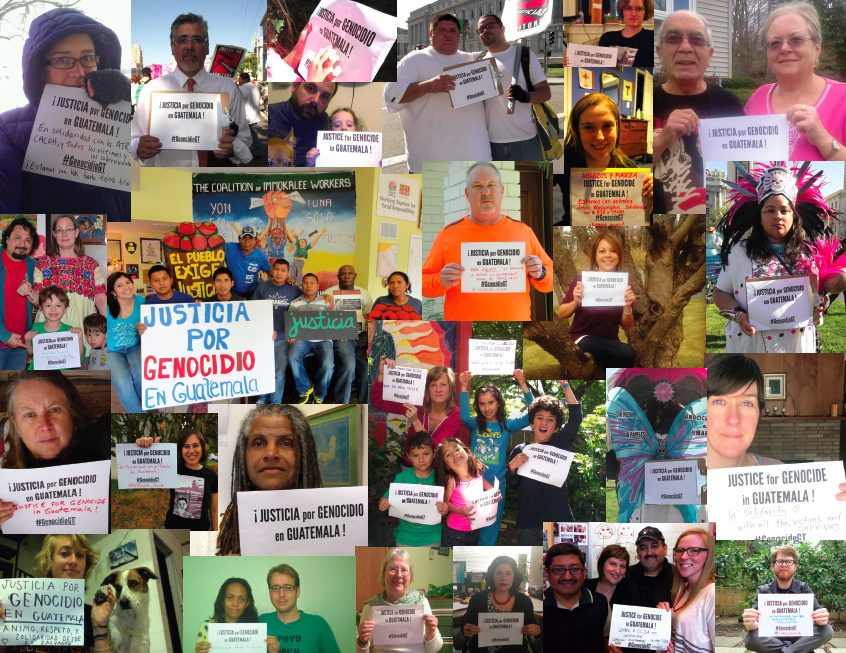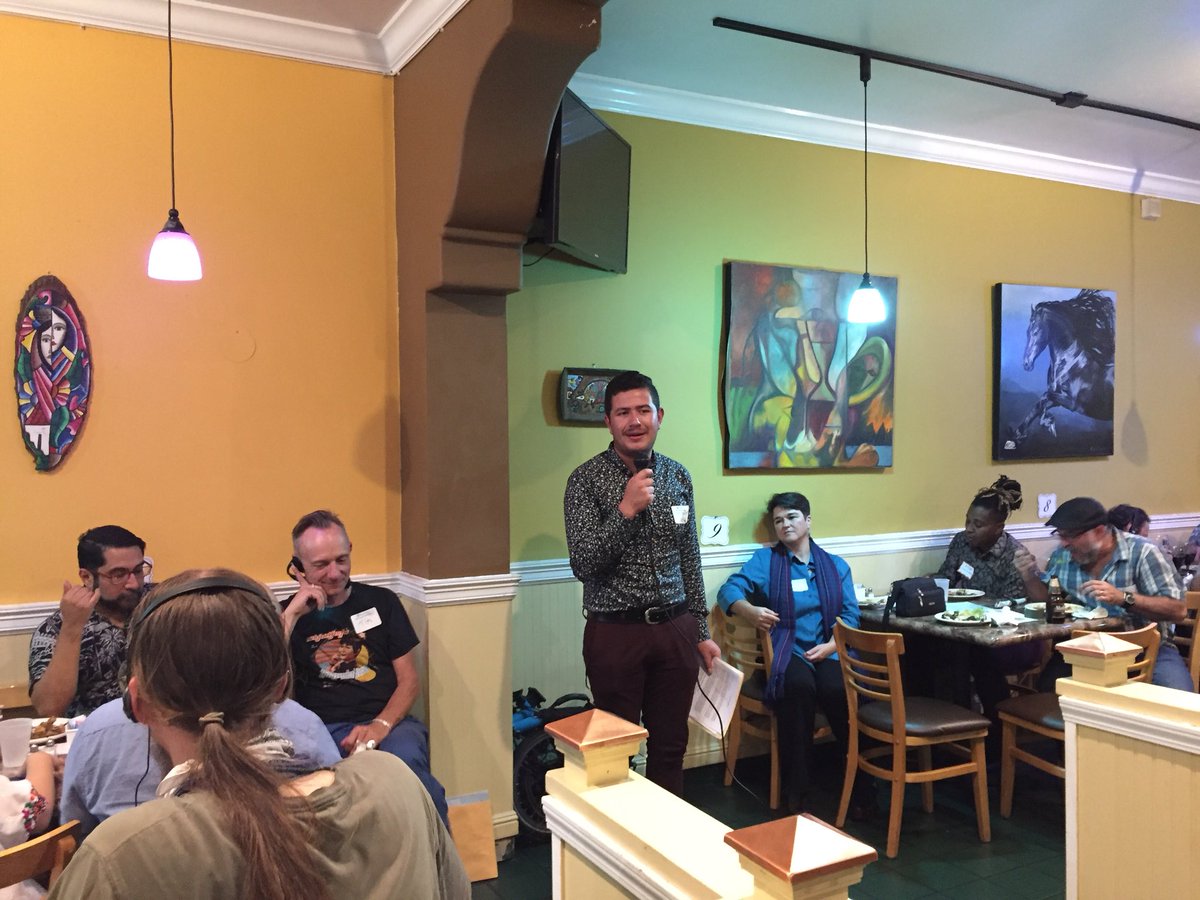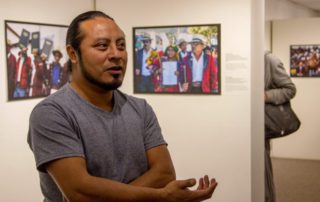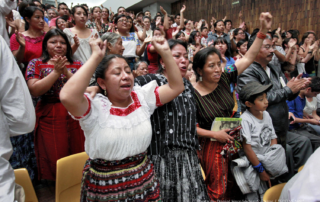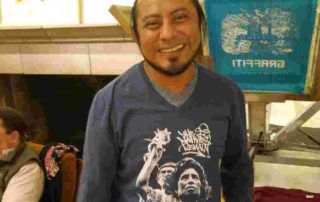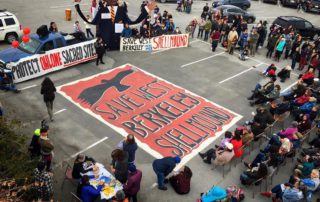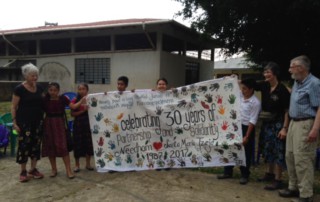Trans-Territorial Organizing
Linking communities in the U.S. and Guatemala in the global movement for justice and self-determination.
NISGUA is committed to strengthening the global movement for justice by building connections between movements in the U.S. and Guatemala. We ground our work in a commitment to racial justice and the recognition that global systems of oppression impact communities in both the U.S. and Guatemala.
In the midst of deepening corruption and repression in both countries, we bring an internationalist focus into our U.S. activism and diasporic organizing while standing alongside Guatemalan communities fighting for justice and self-determination. We work with movements fighting for Indigenous sovereignty and immigrant rights in the U.S. and Guatemala. We build connections between movements through tours in the U.S., delegations in Guatemala, horizontal exchanges, webinars, and original media production.
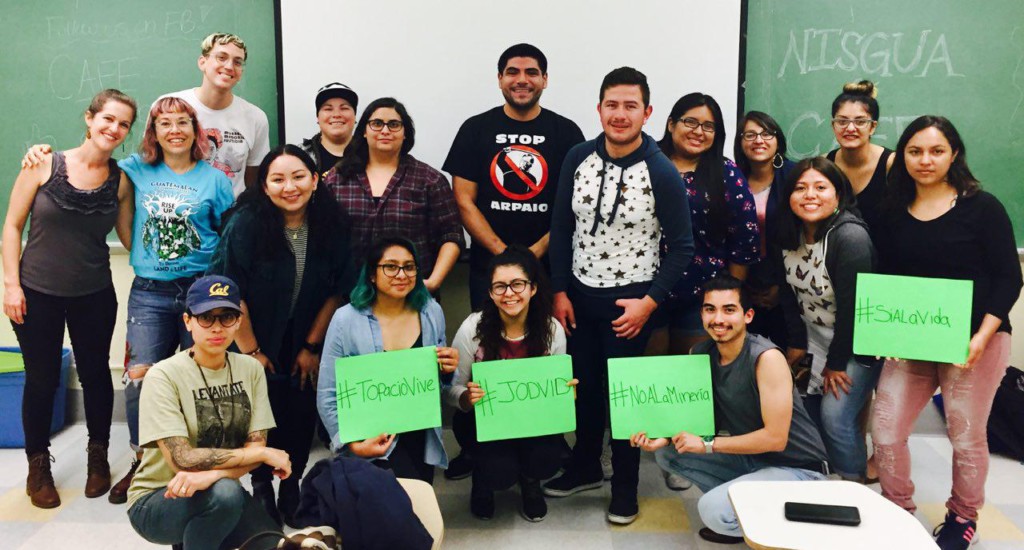
The U.S. has a long history of intervention in Guatemala, not the least of which includes the 1954 overthrow of democratically-elected president Jacobo Arbenz Guzmán. This U.S. intervention initiated an era of military dictatorships that included U.S.-backed regimes who carried out genocide and crimes against humanity, and whose legacy continues to this day. As U.S. mining companies fight to take lands away from communities, creative resistance continues on many fronts. We partner with Guatemalan organizations who are standing up against impunity, peacefully defending their lands against mega-development projects, or fighting for justice for genocide and crimes against humanity. By sharing their stories with U.S. audiences, they increase awareness and inspire grassroots action, illuminating the many ways in which our two countries are connected through histories of resistance.
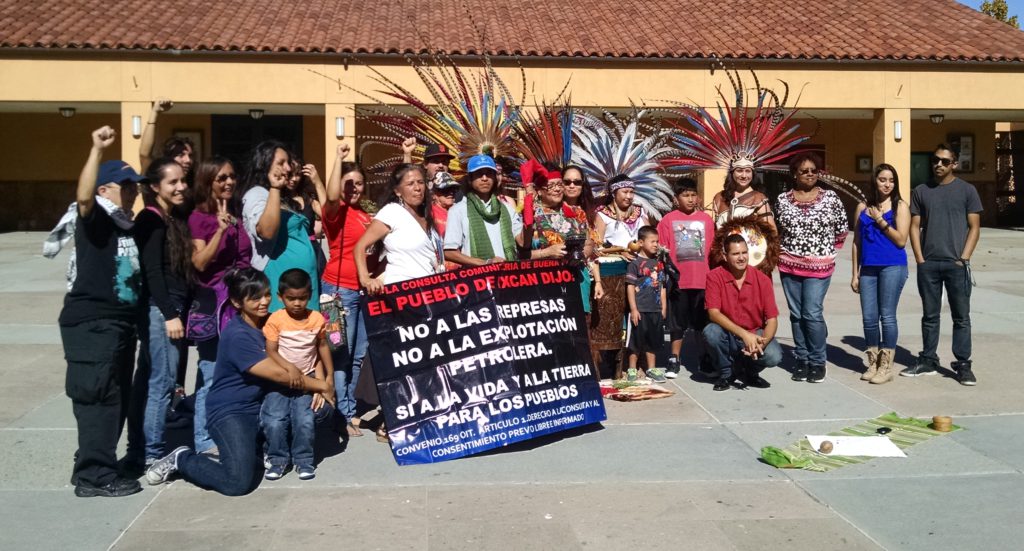
By prioritizing engagement with communities who are similarly impacted by and struggling to transform structures of oppression, we help create opportunities for frontline activists to share strategies of resistance and resilience. Our U.S. programs work has connected indigenous communities in organized resistance to mining, feminist organizations working to end gender-based violence, and youth using art and activism to promote social and environmental justice, among others.
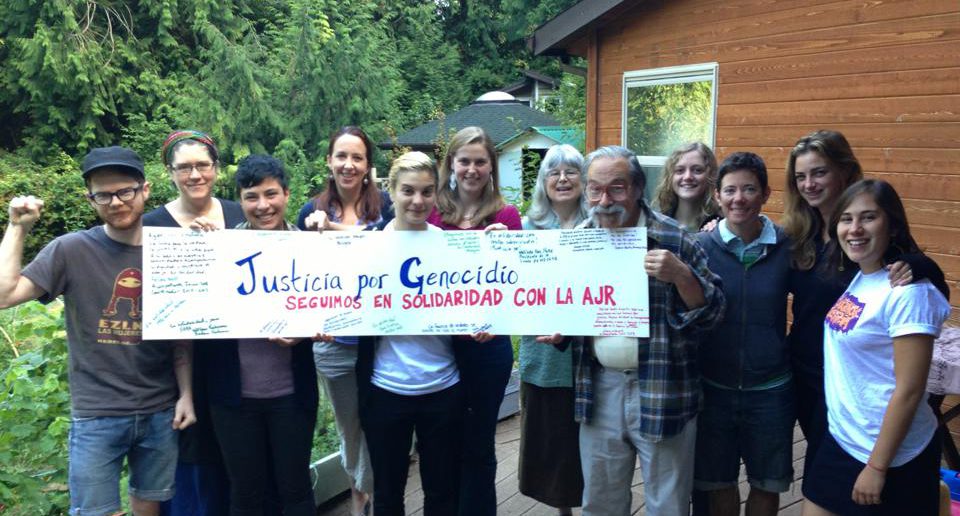
U.S. programs increases the impact and reach of our work by organizing people to form part of a rapid response network, ready to respond to requests for action when they arise, connect our partners’ struggles with local organizing, and strengthen networks through in-person gatherings and grassroots fundraising.
Latest Actions
NISGUA Statements
Racial justice is essential to solidarity work and we must work towards liberation in our solidarity movements.
Read the full statement on racial justice.
Trump’s election and our commitment to internationalism: Solidarity with Guatemalan social movements is an essential component of our social justice strategy here in the U.S.
Latest from Political Education & Horizontal Exchange
Memory and Resistance Delegation
Join NISGUA from September 9-13 to build solidarity with [...]
NISGUA and solidarity organizations welcome congressional delegation on the real root causes of forced migration
A member of the community whose home was destroyed [...]
Ancestral Movements: Indigenous Territories and Migration
Silvia Raquec, Migration Program Coordinator for Asociación [...]
Tour 2020: “Ancestral Movements: Indigenous Territory and Migration” with Association Pop No’j
In light of the COVID-19 outbreak, we have decided [...]
Sisters in struggle: Indigenous Environmental Network leadership trip to Guatemala
In September, NISGUA had the honor of hosting a [...]
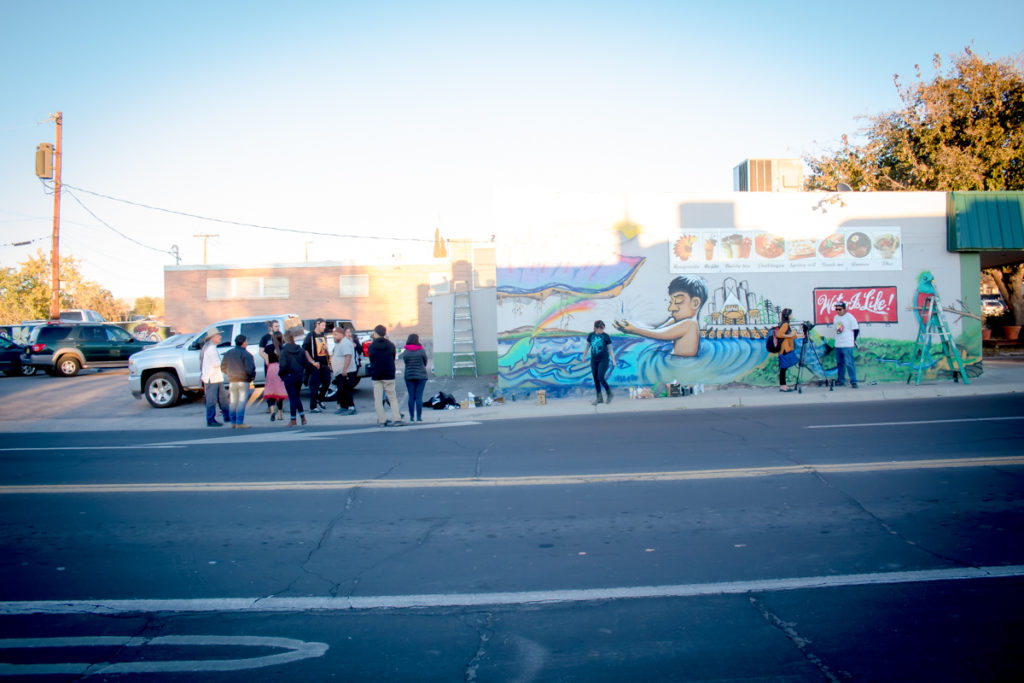
Indigenous artists, Saba and Guadalupe Vargas paint a mural grounded in the protection of water sources during the Indigenous Symposium in Las Cruces. The Symposium was part of our 2018 tour. Photo Credit: Chantelle Yazzie.
Connecting Guatemalan organizers with people in the U.S. who also struggle for self-determination, respect for the Earth, and the liberation of their communities
Every year, NISGUA organizes a U.S. speaking tour featuring one of our Guatemalan partner organizations. This is one way that we respond to calls from our partners to take action and increase awareness in the U.S. about the situation in Guatemala and the harmful consequences of U.S. foreign and economic policy in their territories. In coordination with volunteers across the U.S., the annual tour engages hundreds of people every year in timely action and horizontal exchange, connecting with movements in the U.S. who are organized against many of the same systems of oppression.
Previous tours
2020: Ancestral Movements: Indigenous Territory and Migration
In light of the COVID-19 pandemic, we decided to cancel all in-person tour stops for our spring 2020 tour. We are incredibly grateful for all those in New Mexico, Arizona, and Los Angeles who had been organizing and planning events for months before. In April 2020, we held a webinar featuring our tour speaker, Silvia Raquec, Migration Program Coordinator of Asociación Pop No’j.
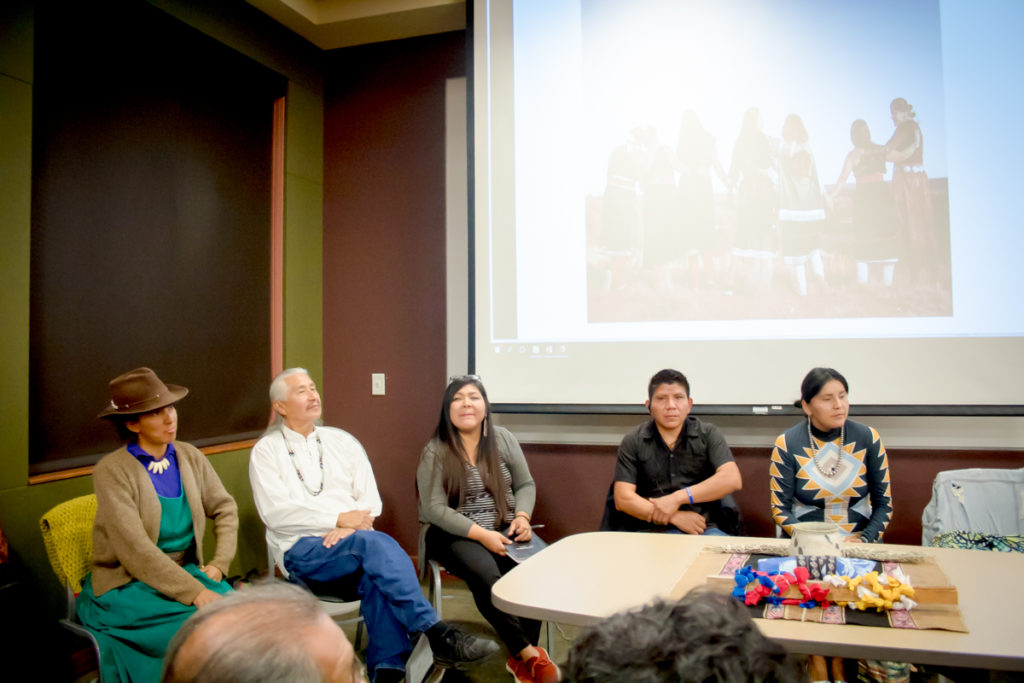
Indigenous Water Protectors Panel from the Water Symposium. Featured in this picture are Edward Wemytewa of the Zuni Pueblo, Reyes Devore with Pueblo Action Alliance, José Gómez of ACODET, Kim Smith of the Indigenous Goddess Gang and New Energy Economy, Benjamin Gaviao Shendo with the Pueblo Camps at Standing Rock, and Crystal Moran with the Frontera Water Protection Alliance. Photo Credit: Chantelle Yazzie.
2018: How to Stop a Dam with Indigenous Resistance
Our tour in the Western and Southwestern U.S. lifted up lessons from successful organizing in Guatemala’s Ixcán region, where Indigenous communities have resisted the imposition of the Xalalá Dam for over a decade. The tour will featured Maya Mam organizer José Gómez, General Coordinator of the Association of Communities for Development and the Defense of Land and Natural Resources (ACODET).
José spoke about their long-term work to build community power in the face of corporate-led development. At the request of ACODET, events prioritized direct exchange with Indigenous communities fighting for social and environmental justice.
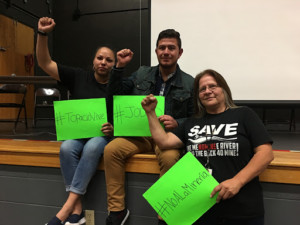
2017: Guatemalan Youth in Defense of Land and Life
Representing Youth Organized in Defense of Life (JODVID), Alex Escobar met with Latine and environmental student activists groups that are fighting for migrant rights and against environmental racism. He shared stories and perspectives from the youth in his community and their struggle to defend their territory against the Escobal mine.
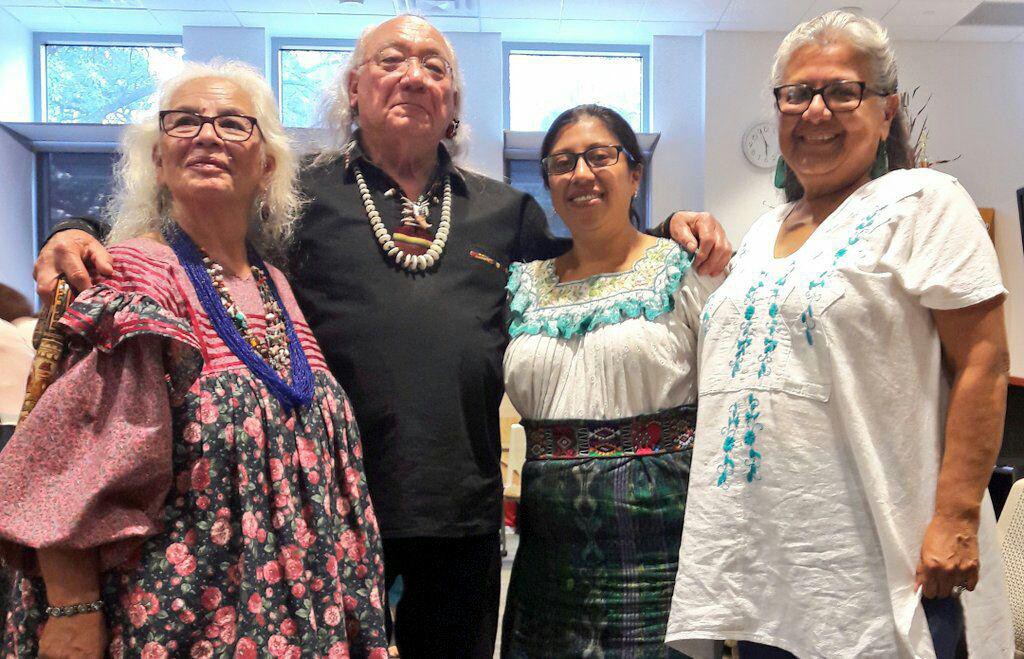
2016: Guatemalan Women Healing Towards Justice: The Case of Sepur Zarco
Community psychologist Maudi Tzay strengthened links between movements for gender justice, while she spoke about the Sepur Zarco case – an emblematic case that prosecuted, for the first time, sexual slavery as a crime against humanity in Guatemala.
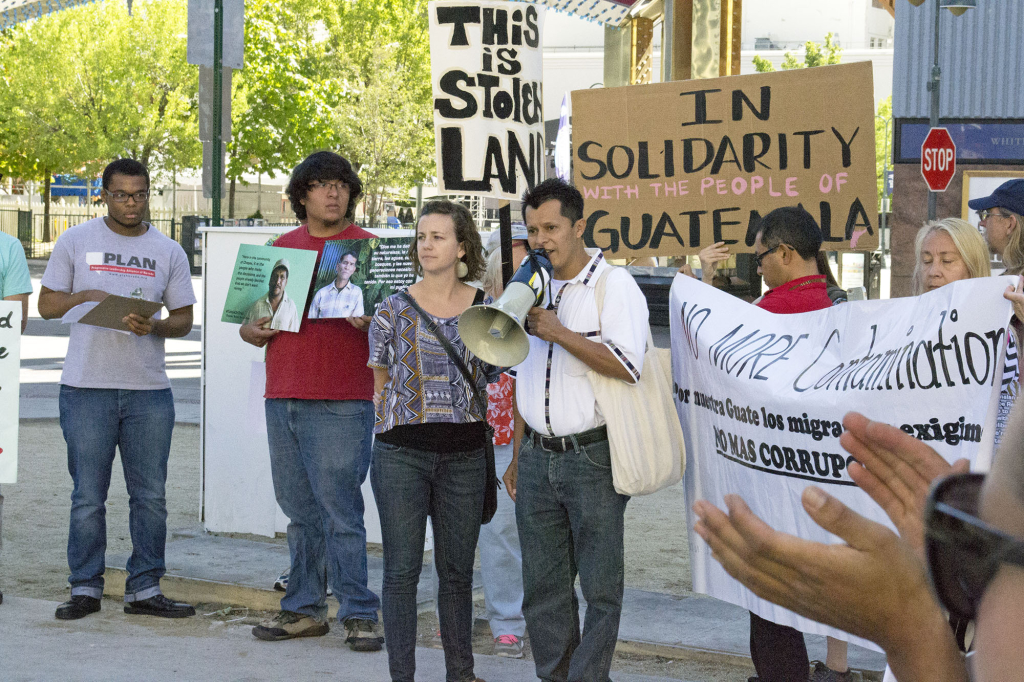
2015: Tahoe on Trial: Guatemalan Communities Defend Land and Life
Llan Carlos Dávila spoke about the work of the Diocesan Committee in Defense of Nature (CODIDENA), a religious group that is leading local efforts to educate and organize communities to protect the Earth and water against transnational mining activities in southern Guatemala – in particular, the Escobal mine.

2016: Mujeres indígenas y el caso de Sepur Zarco: procesos de sanación en busqueda de la justicia
Psicóloga comunitaria Maudi Tzay fortaleció enlaces entre movimientos para la justicia de genero, mientras que hablaba del caso de Sepur Zarco – un caso emblemático, lo cuál juzgó por primera vez la esclavitud sexual como un crimen de lesa humanidad en Guatemala.

2015: Tahoe en la Mira: las comunidades de Guatemala defienden la tierra y la vida
Llan Carlos Dávila habló sobre el trabajo del Comité Diocesano en Defensa de la Naturaleza (CODIDENA), un grupo religioso que lidera los esfuerzos locales para educar y organizar comunidades para proteger la tierra y el agua contra las actividades mineras transnacionales en el sureste de Guatemala, sobre todo el proyecto Escobal de Tahoe Resources.
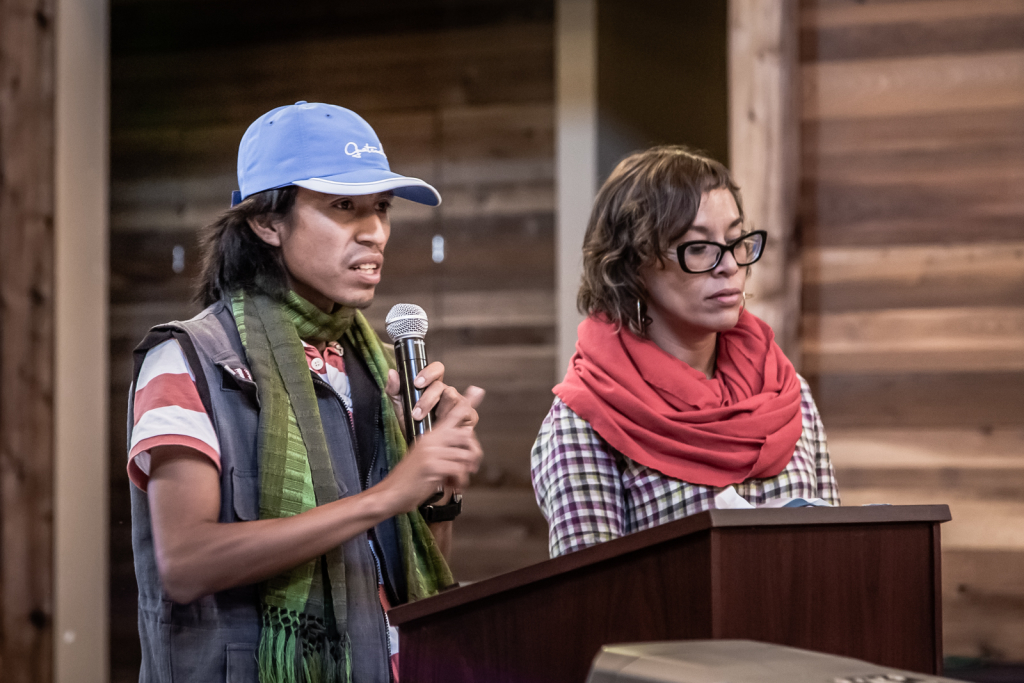
2014: Rios para la vida: Resistencia cultural a la represa hidroeléctrica Xalalá
Víctor Caal Tzuy, de la Asociación de Comunidades para el Desarrollo, Defensa del Territorio y Recursos Naturales (ACODET), vino a los Estados Unidos para hablar sobre la resistencia cultural, la organización comunitaria y la unidad frente a la represa Xalalá propuesta en Ixcán, Guatemala.
Gathering our communities together to reflect, take action, and build camaraderie and stronger networks in the global grassroots fight for social justice.
NISGUA’s grassroots base extends across the United States and beyond. In coordination with our advocacy and campaign work, we create opportunities for people in our network to gather and grow our solidarity movement through nationally-coordinated actions. Coming together in spaces such as the annual Guatemala Accompaniment Project (GAP) Gathering, house parties, accompanier report-back tours, and photo campaigns, our gatherings focus on community-building, political education, and grassroots fundraising.
As a 100% grassroots-funded organization, we see our fundraising and political education initiatives as closely linked. Gatherings combine education with action by raising international awareness about pressing struggles for social justice in Guatemala and organizing our people to take national action at the local level. At the same time, we give local organizers the opportunity to actively fund our solidarity movement and invite new people to make tangible financial contributions to NISGUA’s work as donors.
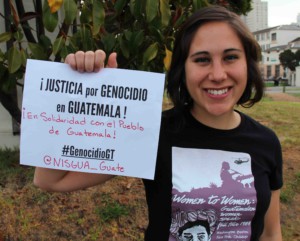
Latest from Gatherings
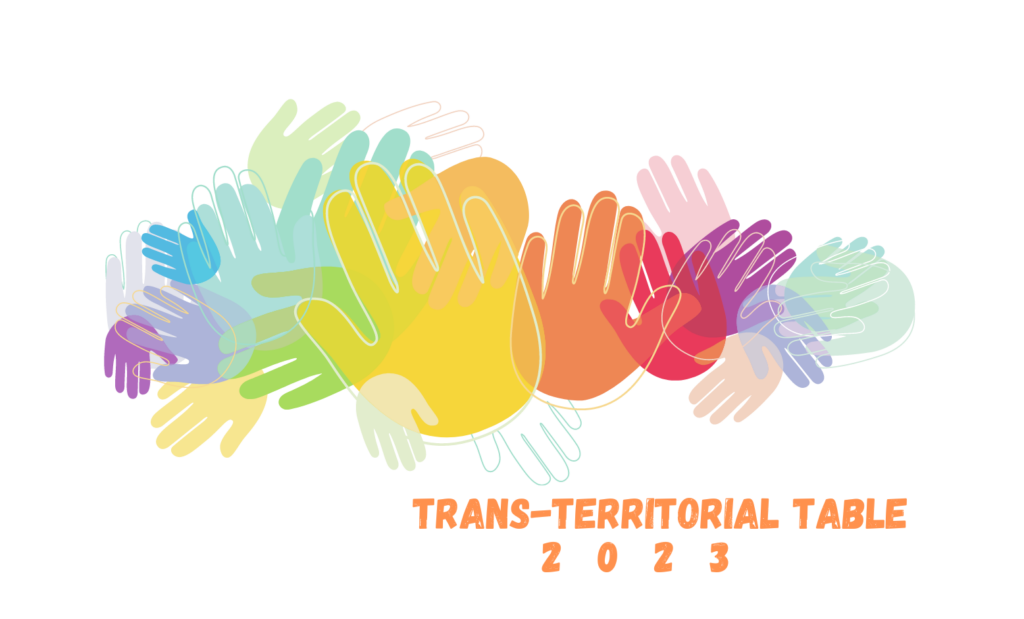
Is your struggle to defend life, territory and community? Do you make art to help us dream of another possible world? Do you write to analyze and imagine justice and resistance? Are you guided by love for your people, for the water, the air, the land? Then we invite you to apply to the Trans-Territorial Table, which is open to community organizers or activists, artists, and members of grassroots organizations.
The Trans-Territorial Table is a project that provides financial support and a virtual space to build relationships between community organizers, activists, artists and members of community organizations to contribute to the joint struggle of the organized Guatemalan diaspora in the US and grassroots organizations in Guatemala.
The goal of the virtual space is for organizers, activists, artists and members of community organizations to exchange knowledge of their resistance, projects, challenges, strategies and more, to strengthen their struggles.
The purpose of the economic support is for organizers, activists, artists and members of community organizations to use this stipend for a specific activity or project that strengthens their struggles.
“The solidarity initiative of linking organizations in the Trans-Territorial Table has been highly important to promote learning, cooperation, communication and organization in the strengthening of cross-border political and social strengths.”
Guidelines to apply:
To participate in the Trans-Territorial Table, interested persons must:
- Fill out the following application form
- In a Word or PDF document, present your proposal in a maximum of two pages with the following information:
- Title of the project
- Proposal where the following questions are answered:
- What is my project?
- Why is this project important to me or my community?
- How does it contribute to the struggles of my community or territory?
- What social, political or cultural issues does my project address
- Timeline of the project starting in August and ending in November (4 months)
- Intellectual and material authors.
- Budget request between $500 and $1000 dollars
- Briefly include how it will be used in relation to the project.
- Include an exact number
- The project can be submitted in any language (Maya Mam, Canjobal, Garifuna, Spanish, English, etc.).
- The period for submitting proposals is from now to July 28th of this year.
- If you have any questions or comments, please write to: nisgua@gmail.com
Activities of the Trans-Territorial Table:
The people accepted into this space commit to the following:
- Receive economic support from $500 to $1000 to develop their proposal.
- Participate in 4 collective virtual meetings, organized and convened by NISGUA at the end of each month where there will be exchanges about the participants’ projects, struggles and knowledges.
- Participate in 1 individual virtual meeting with NISGUA organizers to coordinate access needs, requests and logistical support.
- Present the results of your project publicly in a virtual event at the end of the year with assistance from the NISGUA base.
* Transparency notice: NISGUA will not ask to have authorship of the projects or to be included as co-authors. We will only ask for permission to be able to share the project on our virtual platforms.

